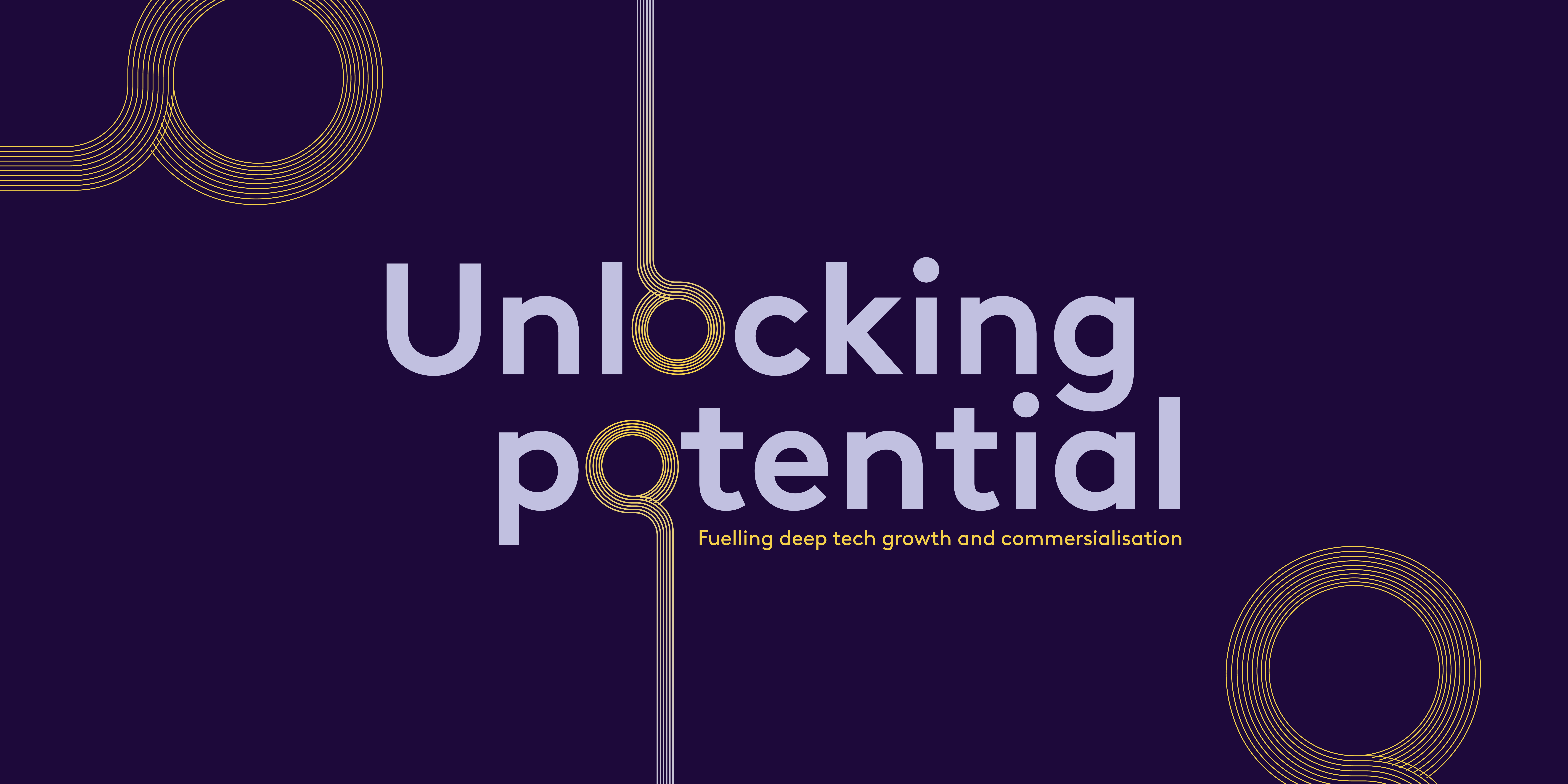‘Why you don’t want me on your board’
Working in VC isn’t just a privilege – it’s my dream job. Over the last decade I’ve spent as an investor, Board meetings have become a key part of my monthly cadence. Participation in more than 200 Board meetings over the years has given me first-hand exposure to a whole wealth of different approaches; it’s also given me the chance to refine my own sense of where I’m useful and where I’m not, and to recognise some instances where I risk being value destructive.
In this blog I’d like to explore some of the ways an investor director (ID) can be a real boon to a growing start up. I’ll also look at when, in my experience, it’s best for us to step back, and go into a little more depth on the figures who might be best placed to replace us.
Investor directors
The personal connection between investors and founders regularly comes in at the top of the list of things entrepreneurs value most. Even so, I expect that given the choice, most founders would probably avoid having an investor joining the Board. Entrepreneurs don’t really choose an investor director (ID) – they just come with the money as part of the package.
Some VCs come from an operating or specialised background (we’ve got many former founders, alongside PhDs and qualified medical doctors at Octopus Ventures) but for many, including myself, being an investor is their career. Early on, I spent a lot of time wondering if my lack of operational expertise was going to hold me back – but many of the world’s top investors (including the likes of Bill Gurley) have started their journey from a similar place.
In fact, what I’ve come to learn is that while operational expertise is certainly a plus, there are a number of areas in which experienced investors still stand to offer highly meaningful input. There are others where their contribution could easily be paralleled by that of any other smart, external, commercially-minded person. Recognising the difference is perhaps the first – and most useful – contribution they can make to a Board.
The key advantage that sets IDs apart from any other Board member is the breadth of their experience across a portfolio of companies, sometimes up to 100+. Founders typically acquire expertise in a linear way, surmounting fresh challenges as they arise but with deep expertise in a smaller number of companies. IDs, on the other hand, work across a range of companies, often in similar verticals, at different stages in their growth journey. With access to a range of portfolio companies’ management teams and KPIs, there are a few specific questions on which IDs can, most likely, outperform others in the room. These include:
- Fundraising. At Octopus Ventures we have more than 160 portfolio companies, collectively raising over $500m every year across 50+ funding rounds. This provides us with high-quality data points on a real-time basis, giving us a clear picture of how companies fare across the process. Investors should be the experts in the room on this topic on both immediate strategy and the tactics needed for good outcomes in future funding.
- Talent. There are over 4,000 employees working across the businesses in our portfolio, with 500 senior executives and more than 200 Founders. There’s always a risk of confirmation bias (you can read more about the steps we take to safeguard against bias here) but this does give us a well-informed view on the team characteristics that have historically correlated with success. Octopus Ventures has another advantage in this respect, in the form of our dedicated People and Talent team who have built specialist approaches to help benchmark and calibrate talent.
- Metrics. We see a lot of metrics, with varying methodologies, giving us insight into emergent patterns and trends. This became especially interesting at the start of Covid, when we watched the same macro trends hit different clusters of the portfolio in similar ways. It’s also interesting with more niche-specific developments, for example the impact of Apple privacy updates on the CPAs of our D2C companies, each of which was affected within days of one-another. As with fundraising, the breadth of our view makes us authorities on what top quartile metrics look like, and how the market’s constantly iterating definition of what ‘good’ looks like is trending.
These are a few examples of where IDs add value, but the other major area not listed above – and where IDs really earn their place at the table – is on the topic of risk. Most of the decisions a Board makes will be on the grounds of cost/benefit, or upside/downside. These are, effectively, questions of risk and probability. Typically, VCs are very good (or at least well practiced!) at making risk-adjusted decisions and thinking about opportunity costs in the context of which bets they want to make. They understand when to be ‘risk on’ and when to be ‘risk off.’ I often think that my main role around a Board table is letting founders know whether we should be increasing our risk or decreasing it given the internal company context and external market context.
Deciding the right course of action is a dynamic calculation that takes into account the future fundraising landscape, current metrics and momentum, the calibre of the team and the range of possible outcomes. Some of the companies I work with have fundamentals that need more work, or aren’t, to my mind, ready for the next round of funding for other reasons. My advice to these businesses is to reduce risk and maximise both time and options. This advice will differ for other companies: If I’m more confident in how things are trending, and where, I’ll push them to take more risk, grow faster, accelerate international expansion or adopt a longer-term outlook – and place more bets.
The longer I spend in VC, the greater my conviction that as an investor who has led the previous funding round, and provided the majority of capital being used to drive growth, the most useful thing I can do is to leverage my experience and clearly signal where our risk appetite should be as a Board. I can think of many examples with companies such as Permutive or Pelago (Quit Genius), where a large component of agreeing strategy or budget comes down to whether the risk appetite feels right.
This is not to say that as an ID I don’t contribute to other questions and topics as well, but I recognise that my contributions in these areas are unlikely to exceed the value of questions asked by any perceptive management consultant. I spoke to Joe Root, the CEO of Octopus Ventures portfolio company, Permutive, to ask what he sees as the purpose of the Board, and what he aims to take from Board meetings. He told me that they’re at their most useful as a mechanism for accountability, holding up a mirror to the company on its recent performance. ID’s can be useful for this – but they don’t necessarily have an unfair advantage like they do in the examples outlined above.
In my experience, I’ve come to recognise the following as areas where IDs could be useful – but probably aren’t the person best-placed to lead on a conversation:
- Governance. This is best led by a fully independent director, as, given any investors material shareholding in a sub-set of share classes, many investors will be conflicted on this topic.
- Strategy. There’s no question that IDs can be useful, especially if they have access to similar or adjacent companies, or come from an operational background, but the contributions of a current operator with domain expertise would most probably be superior.
- Product. Many of the Board meetings I look back on with the most horror featured an ID taking a specific interest in the product roadmap, and trying to shape the plan. No one knows the needs of their customers better than the founder and VP Product – and they should absolutely lead on this.
An unspoken truth about IDs is that a law of diminishing returns is in effect when it comes to adding more of them to the Board. It has become ever-clearer to me that by far the best way of extracting the most value possible from IDs is by leaning heavily on those with a speciality in a specific part of a business’s growth journey, and encouraging them to step back when it has come to an end.
I joined the Board of Pelago following its Series A, which Octopus Ventures led in 2020. Pelago is a digital clinic specialising in the treatment of addictions, and I like to think I was a meaningful contributor in getting the company from its Series A (when it had seven clients, and no revenue) to the point where the team was able to raise $45m and internationalise across the US – onboarding over 60 new clients in the process. But my experience as an investor is focussed on this growth stage, so when Kinnevik – one of the largest shareholders in the largest digital health company in the world – participated in Pelago’s Series B, and Christian joined the Board, it was clearly in the best interest of the company for me to pass the baton along to him.
Understanding the shelf-life of IDs, and having the right people around the table for the themes and questions that are likely to arise as a business progresses, is an essential part of transforming the Board from something onerous – into a huge asset for the company.
Domain expertise
My colleague Constanza Diaz has written a series of blogs on the benefits of building a good Board, but I’d like to dive a little deeper into one of the themes she raises: domain expertise. Having one or two well-qualified IDs is a useful thing, but if the Board comprises of just them and the Founders, there’s a significant risk that meetings become more of a reporting conversation than a strategic decision-making exercise.
In her first blog, Constanza recommended some excellent literature on the subject of Boards, but I’d like to add a book of my own: Brad Feld’s seminal Startup Boards, which I see as a set text for all ambitious founders. In it, Brad identifies three different types of Boards: reporting Boards, working Boards and lame-duck Boards.
It’s an idea that’s really stuck with me since I first encountered it, and I’ve noted the challenge in moving a board from ‘reporting’ to ‘working’. All boards have some element of updating and reporting to key stakeholders, but in my experience the main determinant on whether a board is reporting or working is who you have around the table – not what you put in your board pack, or how you manage the session.
When the conversation feels more like a reporting board, it’s normally because the group knows less than the management team about key decisions – where the founders perceive it as an accountability exercise, not a decision-making group. That’s why it’s essential to bring domain experts to the table. Bringing qualified decision makers together has a transformative impact on the level of decisions that can be made – it’s something I’ve seen time and again with Octopus Ventures’ own portfolio companies. Here are a few examples:
- Chris Morton (founder and CEO of Lyst) on the Depop Board. Chris’s perspective on structuring teams, driving the business and ‘watch outs’ that arose as we went through the Board agenda were instrumental in Depop’s growth and eventual exit.
- Gabriel Mecklenburg joining the Pelago Board. Gabriel is one of the Founders of Hinge Health, which is arguably one of the most successful digital therapeutics companies in the world and which shares a business model with Pelago. Gabe’s contributions, from the market themes he’s experiencing first-hand and the way these stand to impact Pelago, to the nitty-gritty of how they have re-structured their customer success team to focus on a specific metric, have been invaluable in elevating the quality of discussions and decision making as the company grows overseas.
- Graham and Andras on the Skin + Me Board. Graham Bosher is a serial founder and CEO, having founded Lovefilm (which exited to Amazon), Graze (which exited to Unilever) and Tails.com (which exited to Nestle). Andras Szirtes sits on the Board of SpaceNK, Diptyque and other growth stage D2C companies. Their combined experience at some of the world’s leading D2C companies continues to benefit Skin + Me in countless ways.
- David Milner on the Allplants Board. David has been CEO at Tyrells, Ella’s Kitchen and many other D2C food companies that excelled in retail – which is, increasingly, a strategic priority for Allplants. Given his success, and the depth of his expertise, David’s contributions to questions of strategy that will have a material impact on the long-term value of the company will always surpass mine.
When building a board, the path of least resistance is to start with what you have (Founders) and add the people who are included with your financing (Investor Directors). But having seen the impact of independent domain experts, I’m blown away that bringing some onboard as soon as possible isn’t a matter of top priority for founders.
Conversations about adding non-executive directors (NEDs), or introducing a new Chair, are often met with suspicion: it’s easy to see it as a sly plan on the part of the investor to increase their influence. But just as IDs can bring real, useful expertise to the equation, so can independent domain experts stand to massively improve the calibre of the Board – and turn it into a tool for accelerating a business’s growth, and reinforcing its chances of success.
It’s telling that founders who’ve already been through the process of bringing independent domain experts, or other rockstar operators, onto their boards often express regret – not that they did it, but that they didn’t do it earlier. It can be instrumental in helping the most important and strategic decision making group a company has make better decisions.
Key takeaways
In summary, there are a few pieces of advice I hope founders might take to heart:
- First amongst these is that when a Board comprises nothing more than the founders and IDs, don’t be surprised if its value is limited.
- ID’s have an important role to play in critical decisions around risk, fundraising and benchmarking, but when it comes to the nuts and bolts of business decisions (such as strategy, product, market changes and execution), the expertise of an independent domain expert can’t be surpassed.
- If a board feels like a reporting board, it’s unlikely to be the agenda or meeting-structure that’s at fault. The real issue is most likely to be the people around the table.
- It’s the responsibility of the ID to recognise the limits of their expertise, and step back when the time is right. It’s the responsibility of the founder to invest real time and effort into optimising their board and avoid the regretful mantra: ‘I wish I had done this earlier’.
Of course, I understand that people may disagree with this. There are many different approaches to building a Board and its purpose – these are just some of the learnings I’ve gleaned over the course of observing, and participating in, Board meetings at some of the businesses I’ve been lucky enough to work with.
If you have any thoughts or comments, or if you’d like to discuss intentional Board composition further – feel free to reach out. It’s time that founders and investors started discussing the subject more productively. I hope that this will go some way towards opening up the conversation.













